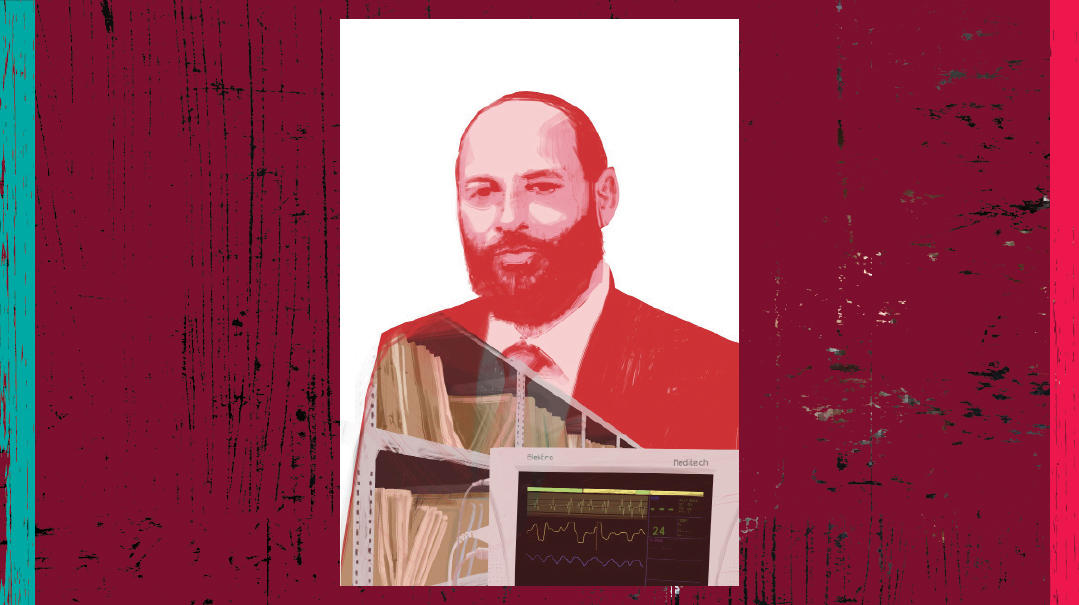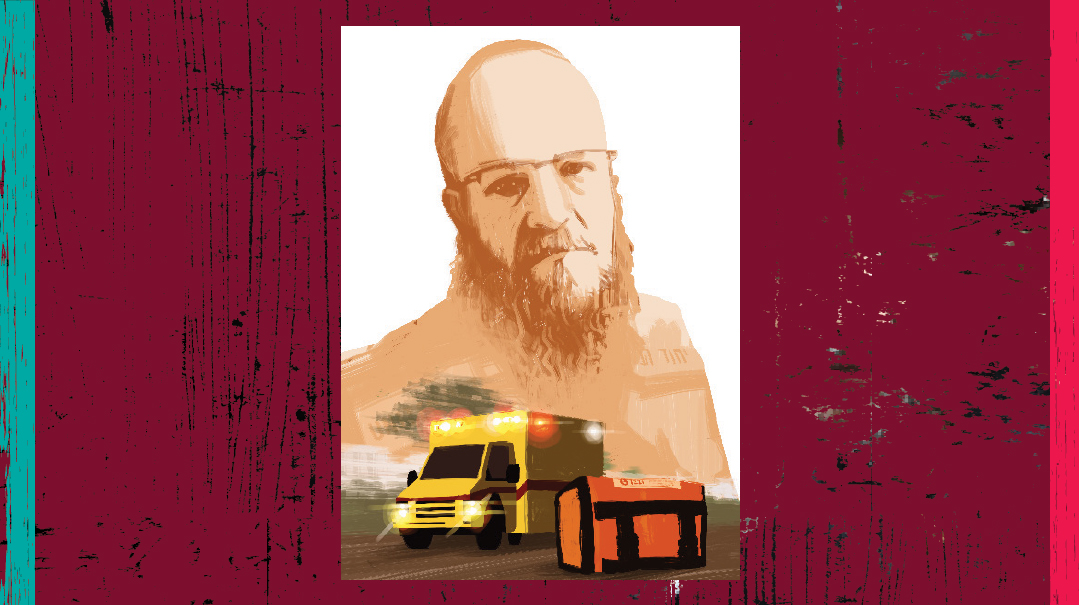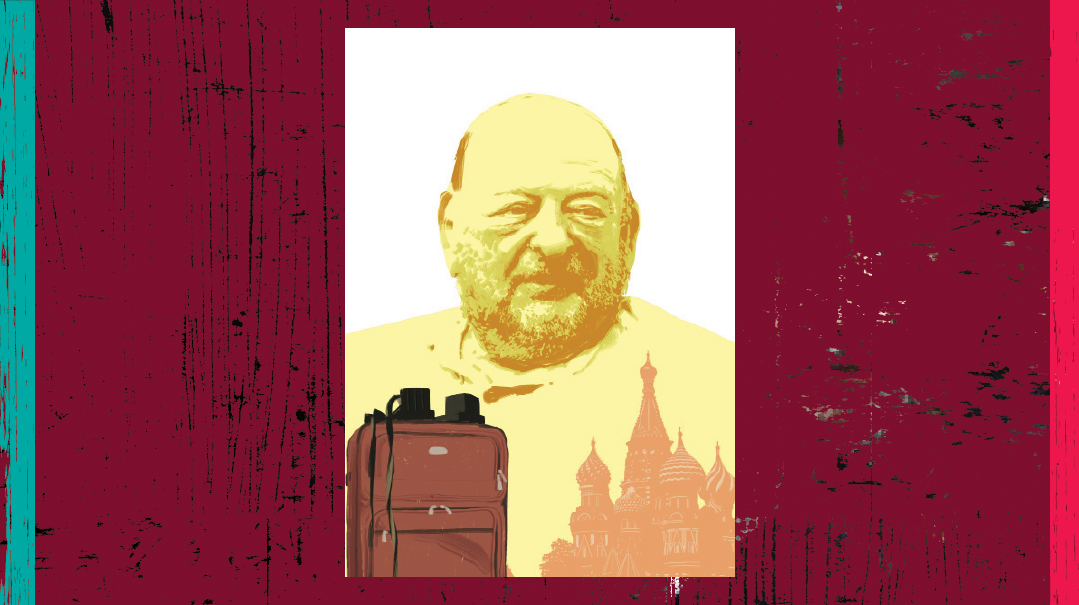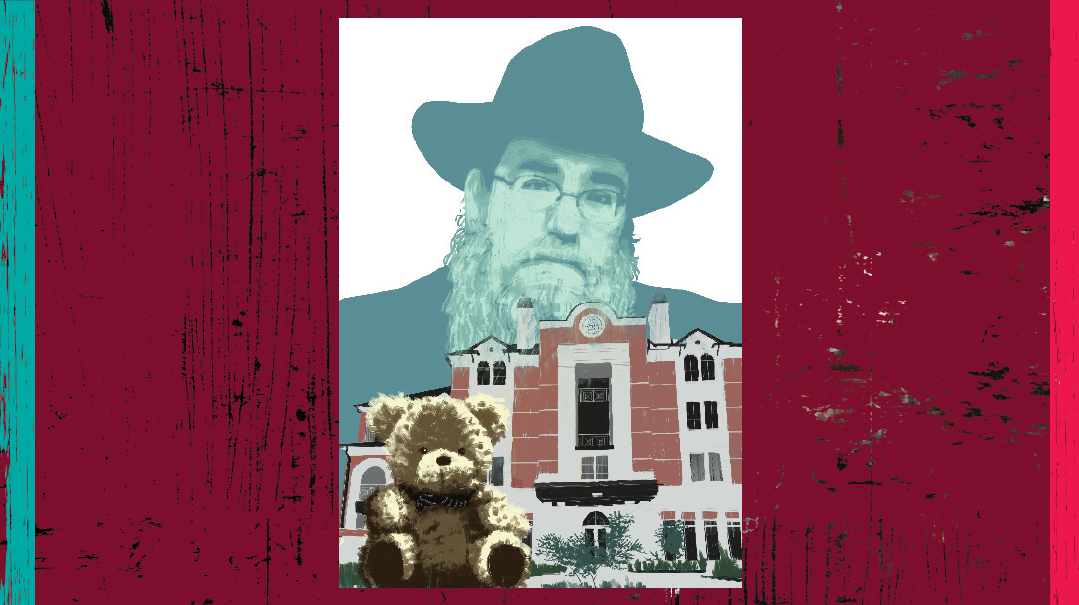A Gift through Grief
| April 5, 2020“Reb Avraham, the zechus of supporting bereaved parents was promised to your Srulik’s neshamah. From the Six Days of Creation, this mitzvah has been waiting for you”
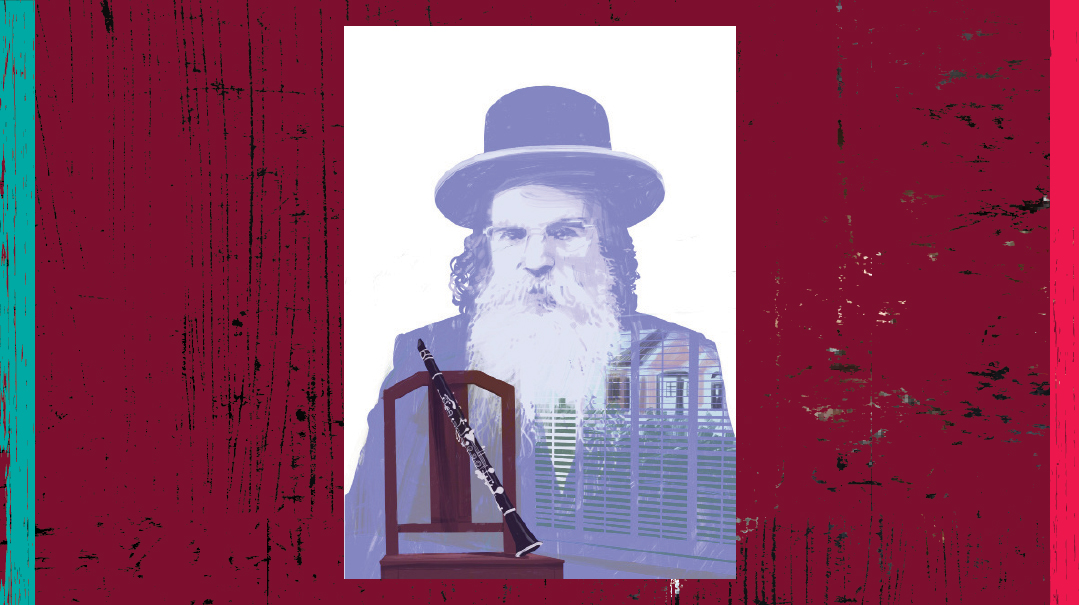
Rabbi Avraham Kluger, founder of Chizku, support for bereaved families, Bnei Brak
It was eight years ago, the Friday before Shivah Asar B’Tammuz, and several of my married children decided to join us for Shabbos. Everyone crowded in, but what greater nachas is there for a parent? Especially as we were also being joined by our ben zekunim, Yisrael Chaim — Srulik, who came home from yeshivah for the family Shabbos.
Srulik was truly gifted — when he was nine years old, I started a chavrusa with him in daf yomi, and by the time he was 17, he’d been tested on 600 pages of Gemara by heart. He was also musically gifted, having mastered the clarinet without ever taking lessons, and that Friday, which would be the last time we could hear music before the Three Weeks leading to Tishah B’Av, his nieces and nephews begged him to play. After half an hour, he told them, “This is going to be the last niggun.” We didn’t attribute anything to that comment, but later that night, after Srulik sang “Ahavah Rabah” over and over with his eyes closed, he was pale and started feeling weak. Shabbos morning he had difficulty breathing, and we rushed him to the nearby Mayanei Hayeshua Medical Center in Bnei Brak. When they couldn’t help him, they immediately transferred him to another hospital. As he was hooked up to machines, we barely understood all the numbers, but we did understand the grim faces. We davened desperately at the bedside, but Srulik was unresponsive, slipping away from us.
By Monday, he was gone. Srulik, my beloved son, so young and full of promise… gone. Numbly, I tore my rekel and followed the chevra kaddisha vehicle down our street. Srulik, Srulik, Srulik… I sobbed in bitter spasms of loss and pain.
My world had crashed to a halt. People came to the shivah with words of comfort and words of Torah, but nothing reached me. I was on the floor, and no one could get me up. For half a year, I couldn’t get back to myself. I could barely speak to my wife and my children. Even my sweet, innocent grandchildren who always brought me such joy couldn’t elicit a smile from me.
About six months after we lost Srulik, I was invited to a Shabbaton by a bereavement support group in the US. I traveled to America in a kind of black cloud, and joined the group. After davening on Friday night, I walked into the dining room. Around 120 parents were sitting at a seudah, eating, listening to a badchan — and laughing. I was taken aback. Was this the wrong group? There was no way these could be bereaved parents.
They assured me it was the right event, and I found a seat. I listened to the featured speakers, who spoke with such love, giving messages of emunah and chassidus. I argued with them, I shared my pain, but at the same time, their message reached my heart. I spoke to other parents and I realized that there was another option besides staying on the floor, alone and isolated. I could get up. I came home a different person — and slowly, my heart began to defrost. Over the next few months, I resumed my prior learning schedule and my other obligations. Occasionally, I even smiled.
On Srulik’s first yahrtzeit, we were called in by my rebbe, the Sanz-Klausenburger Rebbe, who knew that it was a very difficult day. The Rebbe couldn’t help but notice that I’d recovered from my depressed state. “Reb Avraham, tell me, how did you get yourself up?” he asked me.
When I explained how the support group in America had revived my spirit, the Rebbe immediately prodded me to open a similar organization in Eretz Yisrael to support bereaved parents.
“I can’t,” I replied.
The Rebbe assumed I was thinking of the immense burden of funding such an organization. “I’ll donate the first five thousand dollars,” he offered.
I explained that it wasn’t the money. It would just be too traumatic for me to go into shivah houses, to hear other parents’ pain and open up my own wounds all over again.
The Rebbe spoke a little longer, but my mind was made up. It was too difficult for me; I couldn’t do it. Then he said something that made me change my mind: “There are many organizations to feed and clothe the poor, to take care of orphans and support widows. But no one wants to deal with the pain. People are afraid to touch it. Reb Avraham, the zechus of supporting bereaved parents was promised to your Srulik’s neshamah. From the Six Days of Creation, this mitzvah has been waiting for you, for Srulik’s neshamah.”
I took on the challenge, and we created Chizku. Tragically, there is a flood of demand for our services. In this year alone, Chizku supported over 80 bereaved families, and my phone is on 24/6. It could be the low, shaken voice of a Hatzolah medic who had been trying to resuscitate a child, or the sigh of a neighborhood rav. But most often, we learn about fresh losses from our client families, who call to let us know of another bereavement in their neighborhood.
I get into my car and travel to the address. It’s never easy to go inside. Every time I do, the pain of losing Srulik comes flooding back — but right now, this is my task. I walk bravely into the shivah house, its air thickened with grief, and take a place opposite the family. I let them recount the tragedy, cry and laugh. Sometimes, I say nothing at all — knowing what not to say is often more important that knowing what to say. At other times, we talk for hours, long after the visitors have left.
Chizku can’t bring anyone’s precious child back. But we can help the house function and the parents recover. We work with eight mental health professionals to provide therapy for parents and siblings, often at no cost. Sometimes there is financial hardship, if, for example, the parents have been caring for a sick child for months, unable to work. In these cases we can deliver food and pay utility bills.
Come Erev Shabbos, my wife and I sit down and get on the phones. We call each bereaved family weekly for at least six months. “How are you? How’s your family doing? How are the children getting on?” Often the answer is something like, “The children are not doing too well, they’re embarrassed to attend school after the tragedy at home.” We can help the siblings get the support they need. As my wife says, if your head hurts, you speak to a doctor; if you’re missing an ingredient, you go to a neighbor; but after losing a child, you can’t talk to a parent, sometimes you can’t even talk to a rebbe. They don’t know what you’re going through. We are the address, because we know that pain.
Occasionally a nonreligious parent calls me, and those calls are the hardest. “I lost everything,” the parent cries from a bottomless pit of despair. Those are the saddest calls of all for me; I have little comfort to offer, because the truest comfort for a believing person is that our children are a precious deposit from Hashem that we’ve been summoned to return to Him.
One of Chizku’s main activities is providing broken parents with the opportunity to relax on a short vacation. After sitting shivah for a child, the calm waters of the Kinneret can provide healing for a family, with a Shabbos in a beautiful apartment in Teveria offering tremendous therapeutic benefit.
I’ve been receiving many phone calls from couples who have gone through a stillbirth or a crib death. We’ve found that shalom bayis can be very precarious in such situations, as pent-up fountains of grief can, G-d forbid, drive couples apart. The parents of a stillborn do not get Bituach Leumi payments, and the mother does not get to recuperate at a mother-and-baby home. And so, I’ve become their address. Spending three nights in a vacation apartment in Tzfas, with their meals provided by Chizku at a kosher restaurant, enables the couple to sit and talk without the daily grind of distractions, and to begin to heal as a couple.
I speak to the Chizku parents every day, on a dedicated hotline. No mussar, nothing about tikkunim and gilgulim, just five minutes of encouragement, a joke or a story or an encouraging vort from the Sanzer Rebbe. From the times of the calls alone, I can tell that their pain keeps them up at night.
Every two years, we organize a gala hachnassas sefer Torah, dedicated by all the Chizku parents to the memory of their children. These are people who can’t afford to dedicate such a memorial on their own, but joining forces and finances allows their dream to come true. For me, it’s about transforming “horim shekulim [bereaved parents]” to “horim sheyecholim [parents who can],” by putting the yud of Hashem’s Name back in.
(Originally featured in Mishpacha, Issue 806)
Oops! We could not locate your form.






